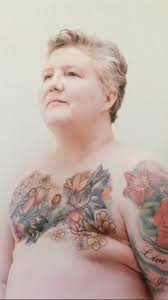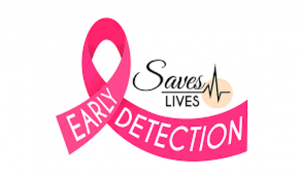Breast Cancer and caring for your patients
Breast cancer can be scary for anyone. It is not always talked about for men, but yes men too. About I in 8 women develop breast cancer, and 1 in 4 know someone who has been affected by it. Health care providers recommend that women do regular self-exams for breast cancer detection. Patients may be confused about how to perform when to examine your breast. The week before your menstrual cycle, after weight gain, and weight loss. If you no longer have your menstrual cycle, pick the same day every month. Letting your doctor know if any changes
The video below will demonstrate.
Looking for visible changes such as new shapes and sizes, It is normal to have one breast larger than the other. Dimpling or puckering on the nipple, rashes that come and frequently go on the skin around the nipple; change is the nipple as inversion, retraction, bleeding, or discharge. Redness or soreness to the armpit area, new veins on the surface. Check while raising hands above head, hands-on-hips, and while laying down. A lump, swelling or thicking may show in one position but not in all.


Risk factors can stem from anywhere
There is no magic answer to what causes breast cancer. Some factors that have been the same are biological and environmental factors that increase one’s chances.
Biological Factors
– Over the age of 55
– Family history of cancer
– Starting your period before 12, or menopause after 55
– Having the BRACA1 and BRACA2 gene in your family
Environmental factors
– Poor diet and nutrition
– Overweight or obese
– Consuming alcoholic beverages
– Smoking tobacco
– Having excessive radiation
– Using birth control
– Taking hormones
Caring for patients as a nurse, with a kind heart and warm touch. The understanding of the process can ease the mind of women. Give the patients to the floor to ask any questions. A patient will think that they are asking too many questions or that they may be dumb and don’t ask it. Giving a positive experience will add trust and encouraging conversation into a full-stress topic such as breast cancer or screening. As a provider, you may have to speak about the pros and cons of mammograms and genetic testing in as simple of manner as possible, thus being respectful and educated for understanding. Not all patients will understand all medical terminology. When you go the extra mile for your patients, they feel it and will remember that experience forever.
References
Brucker, Mary. (2017, October). Breast cancer screening . Define_me. https://nwhjournal.org/article/S1751-4851(17)30269-6/fulltext.
Maree, J. E., & Mulonda, J. K. (2017). Caring for Patients with Advanced Breast Cancer: The Experiences of Zambian Nurses. Asia-Pacific journal of oncology nursing, 4(1), 23–28. https://doi.org/10.4103/2347-5625.199077
Prolla, C. M., da Silva, P. S., Netto, C. B., Goldim, J. R., & Ashton-Prolla, P. (2015). Knowledge about breast cancer and hereditary breast cancer among nurses in a public hospital. Revista latino-americana de enfermagem, 23(1), 90–97. https://doi.org/10.1590/0104-1169.0185.2529
Wu, T. Y., & Chen, S. L. (2017). Breast Cancer Screening Practices and Related Health Beliefs among Taiwanese Nurses. Asia-Pacific journal of oncology nursing, 4(2), 104–1111. https://doi.org/10.4103/2347-5625.20449
